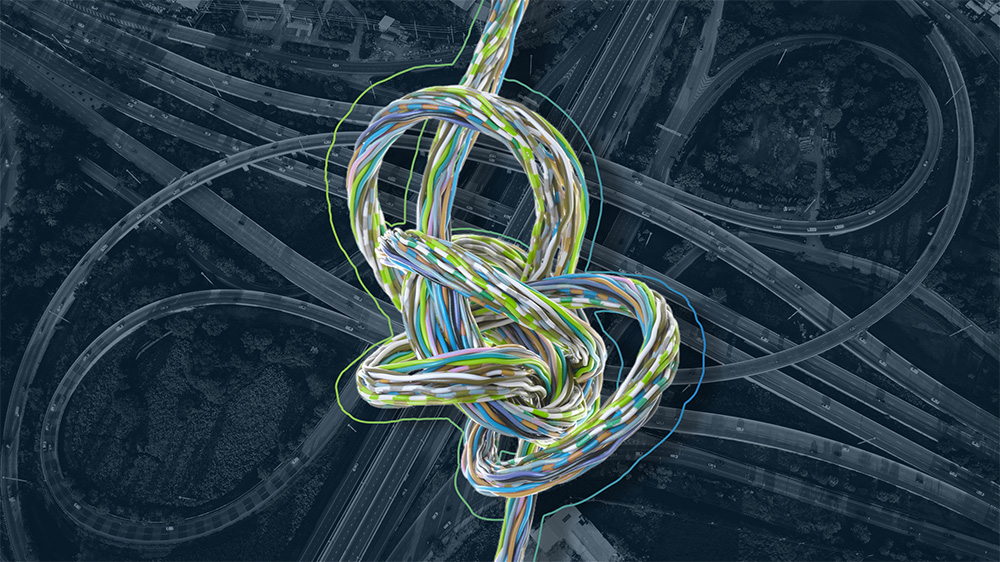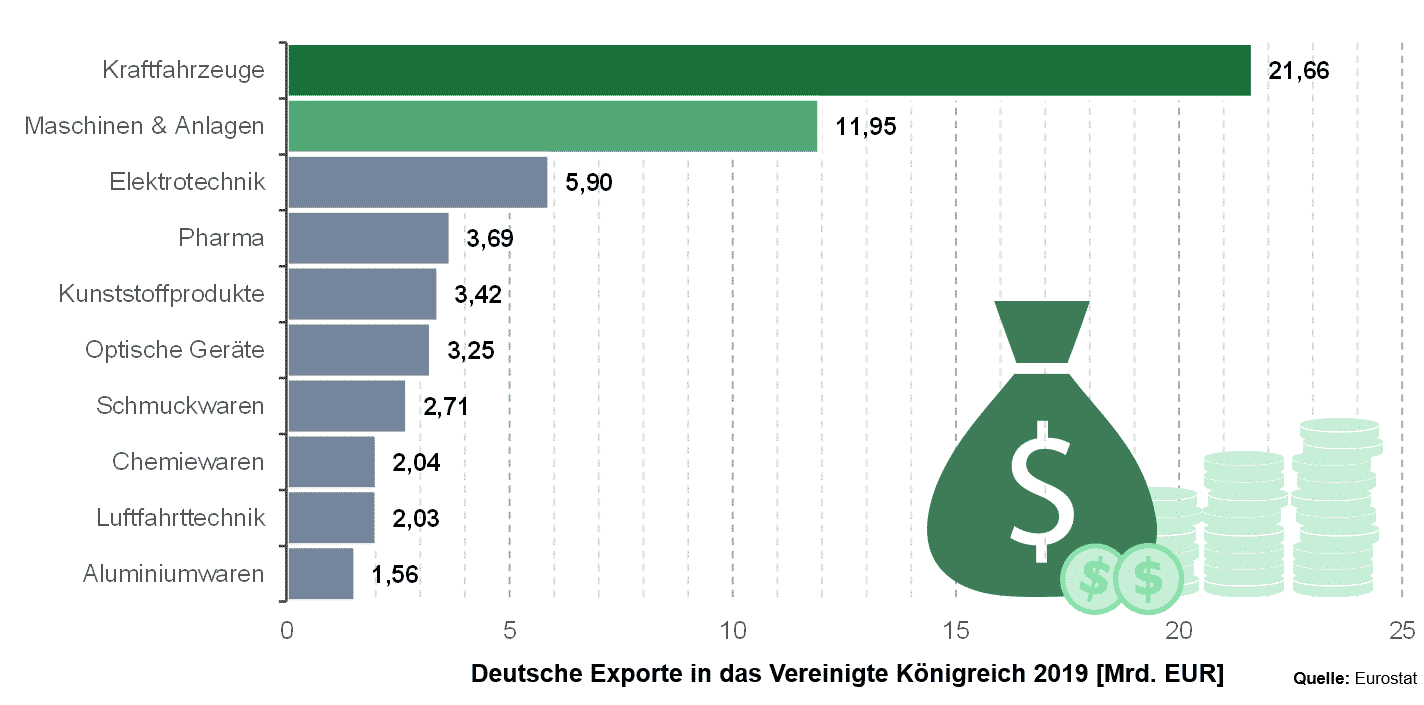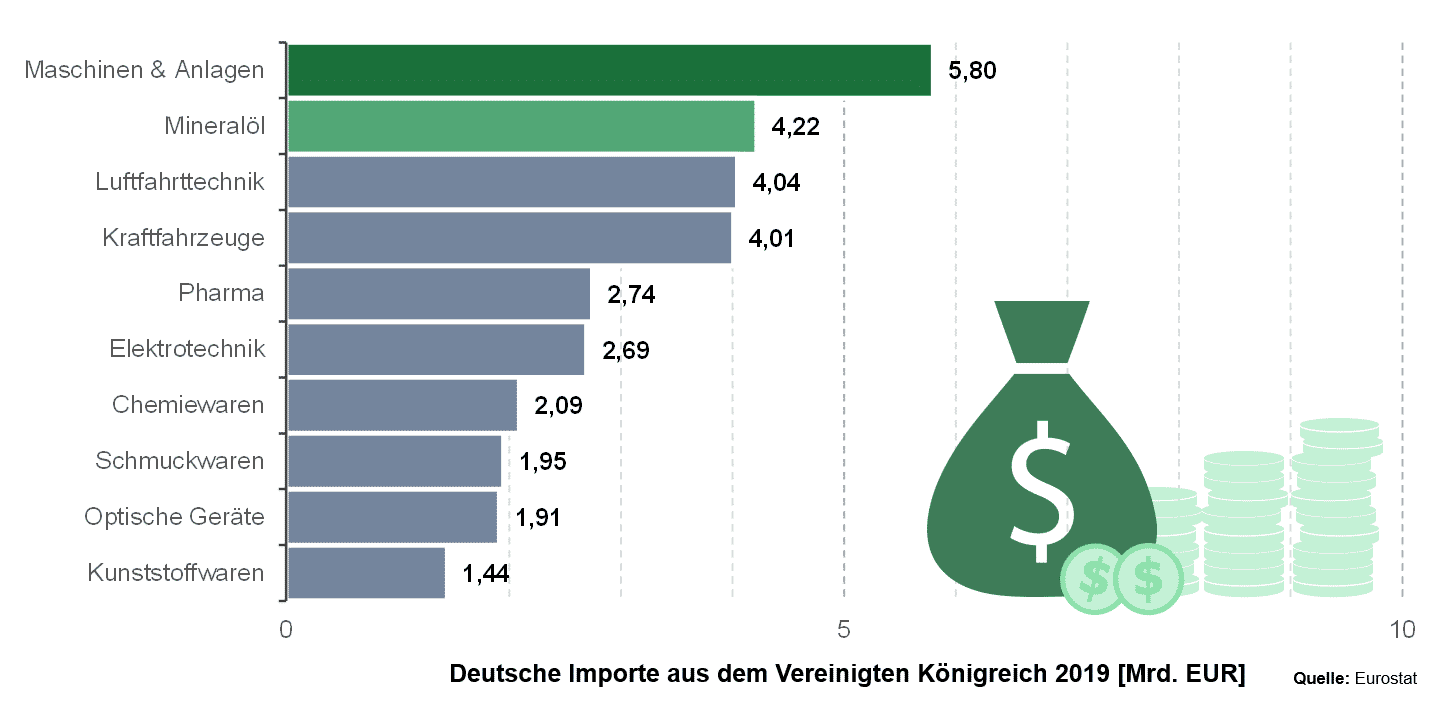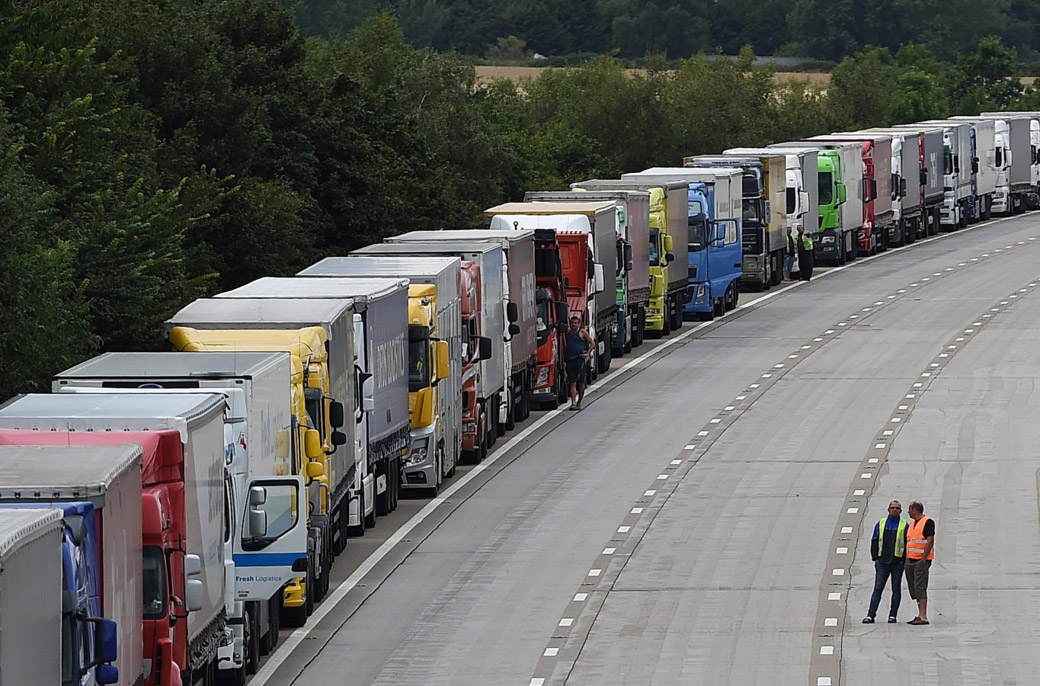
Fields of action in complexity management
How can product variants be cleverly substituted? How can an intelligent pricing policy improve the…

Blog
The effects of the coronavirus crisis on industrial value chains are not yet over, but the next operational and strategic challenge is already waiting: Brexit. The United Kingdom left the EU at the beginning of 2021 and entered a phase of uncertainty. We show you the challenges that may arise for your supply chain and how you can prepare.
On January 31, 2020, the United Kingdom officially left the European Union. Since then, a transitional arrangement has been in place until the end of the year, which will not initially result in any changes for companies and citizens on either side. However, negotiations on the shape of future relations have been deadlocked for a long time. Most recently, the urgent problems of the coronavirus crisis have been added to the mix and have pushed the risk of a hard Brexit almost completely into the background.
No-deal Brexit is a real risk for your supply chain.
Dr.-Ing. Kai Philipp Bauer, Senior Manager Supply Chain Management
However, this does not eliminate the potential risks for companies. On the contrary, the probability of a hard Brexit and therefore the supply chain risks have de facto increased. It is therefore high time for companies to deal with the possible effects and take appropriate measures to ensure the functioning of their supply chain. Because even if your company does not source primary products directly from the UK, your suppliers may do so.
In this article, I would therefore like to show you the consequences for your supply chain and what suitable countermeasures you can take.
The UK’s share of total EU exports is 6.6%. However, the picture varies depending on the sector: the German automotive industry, for example, exported almost 600,000 vehicles to the UK in 2019.

The likely consequence of a no-deal Brexit is a scenario in which the free movement of goods would be replaced by a tariff-based system in accordance with the rules of the World Trade Organization (WTO). Exports that are currently duty-free would – depending on the class of goods – be subject to import duties and import sales taxes, making them significantly more expensive for customers in the UK in some cases.
It is therefore highly likely that European companies will suffer corresponding losses in sales and profits from these transactions. The example of the USA also shows that populist governments prefer to use tariffs as a direct means of exerting pressure, causing uncertainty among consumers and companies.
First of all, you should reorganize your INCOTERMS policy. New customers should no longer be offered INCOTERMS with customs clearance and existing customers should be converted if possible. By taking these measures, you can at least avoid the immediate costs, but your goods would still be sold at a higher price either way.
Check whether your products can benefit from more favorable import duties using the CKD approach.
Dr.-Ing. Kai Philipp Bauer, Senior Manager Supply Chain Management
Companies should therefore examine the extent to which they can circumvent customs duties and other tariff barriers to trade by changing their value chain structure. One possible solution has been successfully practiced in the automotive industry for years: in the CKD (Completely Knocked Down) approach, complete kits are exported rather than finished vehicles. This relocation of the final assembly step to the respective sales country has two advantages:

Senior Manager Supply Chain Management
Would you like to prepare your supply chain for the various Brexit scenarios? Rothbaum is at your side with proven expertise and years of experience. Please feel free to contact me.
If your company or your suppliers source key components and primary products from the UK, you will be purchasing at a higher cost in the future.

In principle, you can therefore agree the same countermeasures with your suppliers as described above. However, it is more likely that in many cases you will find alternative suppliers in the remaining 26 non-EU countries.
To this end, companies should analyze their parts lists and assembly structures in depth: Which components are currently sourced directly from the UK? Which of your end products consist of a significant proportion of these items? You should also check which suppliers have a high proportion of value added in the UK and which of your end products are affected by this.
Analyze your products for the British value-added share.
Dr.-Ing. Kai Philipp Bauer, Senior Manager Supply Chain Management
These analyses are particularly time-consuming for companies with a large number of variants or complex assembly structures in SAP. Due to the short time available, it is also necessary to concentrate on the most important supplier items for your own value creation. With the help of professional tools such as Soley, these analyses can be carried out in a time-saving and collaborative manner.
If you sell your products to the UK again, you should look into the possibility of providing the previously identified items. Admittedly, this project is complex to execute and not relevant for every company, but import duties into the EU could be avoided completely.
After the end of the transition phase, the barriers would fall overnight in the event of a no-deal Brexit. It can currently be assumed that it will not be possible to create sufficient capacity in the customs authority, particularly on the British side, to process the expected volume of goods in a timely manner. As goods traffic between the British Isles and mainland Europe is mainly handled via the Calais-Dover route , experts are therefore expecting long traffic jams and waiting times before clearance. There was already a foretaste of this 5 years ago when the port of Calais went on strike.
The ability to deliver is seriously jeopardized in the first few months.
Dr.-Ing. Kai Philipp Bauer, Senior Manager Supply Chain Management
This would result in massive delays of several days. Time-critical shipments in tightly synchronized value chains will be particularly affected by this, meaning that these supply chains could be thrown out of sync and companies’ ability to deliver could be jeopardized.

Where possible, companies should therefore build up stocks in strategically favorable storage locations within the supply chain over the coming months in order to compensate for the expected disruptions. Use the remaining transition phase to avoid costs and expenses for customs clearance.
Companies that export their products to the UK must take this additional delivery time into account in their sales planning. This applies in particular to products for which the delivery time is a key performance feature, such as spare parts or tools for the label industry. From the customer’s point of view, an extended delivery time can represent a major competitive disadvantage which, without compensation, leads to lower sales volumes. Perishable goods are a special case, where delays should also be taken into account when calculating the remaining shelf life before shipping.
Various delivery times and material availability are often agreed in the service level agreements, which you are obliged to comply with. In addition to their own sales planning, companies should therefore also review the contractual obligations to their customers and adjust them if necessary.
Check your promises to your customers.
Dr.-Ing. Kai Philipp Bauer, Senior Manager Supply Chain Management
If your company relies on time-critical deliveries from or to the UK and you cannot create sufficient alternatives until the end of the transition phase, you should reserve sufficient air freight capacity. As the prices for air freight on the spot market sometimes deviate significantly from contract rates and significantly reduced freight capacity is to be expected due to the coronavirus crisis, you should act as early as possible.
As an Authorized Economic Operator (AEO), you can benefit from numerous simplifications in your logistics processes on both sides of the new border. Companies should therefore apply for authorization from the British government in good time.
With the end of the transition period, the automatic application of European laws and standards in the UK will also end. This raises numerous regulatory and legal issues that companies need to consider.
Almost all industrial flows of goods are managed or operated by IT systems. Unfortunately, it is not yet clear how the customs regime, export controls and other regulatory and legal framework conditions will be structured in the future. The only thing that is clear is that companies should map these new regulations and requirements in their processes as soon as possible. Therefore, make sure that you reserve sufficient IT resources in your own company and with your external IT service providers in order to be able to make the expected adjustments in a short space of time.
You need your IT at your side.
Dr.-Ing. Kai Philipp Bauer, Senior Manager Supply Chain Management
The new requirements are particularly relevant for export control-relevant goods (dual-use goods or military products), as significant fines and imprisonment can be expected in the event of violations. Companies should therefore bear this in mind when exporting these classes of goods to the UK.
Brexit is casting its shadow and posing major challenges for companies on both sides of the new border. The deadlocked positions of the negotiating partners offer no certainty as to which scenario and which specific framework conditions the trading partners will have to adjust to. Companies must therefore remain vigilant, monitor developments closely and prepare for all eventualities.

Senior Manager, Hamburg
Kai Philipp Bauer studied mechanical engineering with a focus on production technology and has been working in consulting for over 15 years. He advises his clients in particular on issues relating to strategy development, operations management and digital transformation.